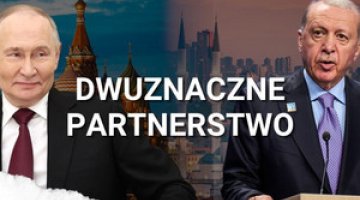Turkey: the PKK’s historic decision to disband
On 12 May, the Kurdistan Workers’ Party (PKK) announced its decision to abandon armed struggle and disband. In a statement, the organisation – designated as a terrorist group – announced that its historical mission had come to an end due to the emergence of political opportunities in Turkey for resolving the ‘Kurdish question’. The decision to cease operations was made during the PKK congress, held from 5 to 7 May in two unspecified locations in Iraq.
President Recep Tayyip Erdoğan described the PKK’s declaration as ‘an important step towards a terror-free Turkey’ and announced that a more detailed statement on the matter would be issued soon. He also emphasised that Ankara considers the party’s decision to disband as binding for all PKK-affiliated organisations worldwide.
The PKK congress’s decision marks the next stage in the ongoing ‘Kurdish opening’ process, which began in October 2024. As part of this initiative, the Turkish government had been negotiating a peace agreement with the PKK through the legally operating pro-Kurdish Peoples’ Equality and Democracy Party (DEM). The PKK’s self-dissolution was a fundamental condition set by the Turkish authorities for continuing the negotiations.
Commentary
- The PKK congress declaration was met with a favourable response in Turkey from both the government and the main opposition party. Ankara, which had been engaged in peace talks with the organisation since last year, had been expecting such a statement. On 27 February, the PKK’s historic leader, Abdullah Öcalan, had called on the group to disarm (for more see ‘A ‘new Kurdish opening’ in Turkey: a bumpy road to peace’). From the perspective of the Turkish authorities, the PKK’s self-dissolution is a necessary condition for continuing the normalisation process. The Republican People’s Party (CHP) also responded positively to the recent progress. However, broader opposition circles in Turkey have raised concerns that the negotiations may be part of a plan to extend President Erdoğan’s time in office through constitutional amendments, potentially secured with support from the DEM party. In such a scenario, DEM would support the president in exchange for concessions, such as expanded rights for the Kurdish minority, for instance in the sphere of education.
- The details of the PKK’s disarmament process – both military and political – remain unknown. So far, statements from either side have not addressed key issues, such as the procedure for handing over weapons or the future of the organisation’s fighters, including those imprisoned in Turkey and those involved in armed operations in neighbouring countries (Syria and Iraq). The fate of Abdullah Öcalan, who has been serving a life sentence in a high-security prison since 1999, also remains undecided. Improving his prison conditions has been one of the Kurdish side’s key demands. To date, the Turkish government has not publicly responded to the proposals put forward by DEM. These include the constitutional recognition of Kurdish minority rights and broader democratisation of the state, such as ending political repression of legally operating Kurdish parties and halting military operations against Kurdish forces outside Turkey.
- The PKK’s self-dissolution offers a potential end to the conflict between the organisation and the Turkish state, which has lasted for over 40 years and resulted in tens of thousands of casualties on both sides. From Ankara’s perspective, the ongoing presence of Kurdish groups in Syria remains a major obstacle to reaching a peace agreement. Turkey regards these groups as part of the PKK and demands their disbandment, including the dismantling of Rojava – the de facto Kurdish autonomous region governed by the Syrian Democratic Forces (SDF). The durability of any future Turkish-Kurdish agreement will depend on the success of efforts to reunify Syria. Prospects for lasting peace are also undermined by the Turkish leadership’s increasingly authoritarian trajectory. The growing crackdown on the opposition, including the arrest of Istanbul’s opposition mayor, Ekrem İmamoğlu (for more see ‘Turkey: Wave of protests following the arrest of Istanbul mayor’), raises doubts about Ankara’s credibility in pursuing the state’s democratisation.





